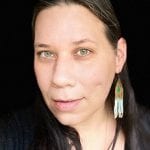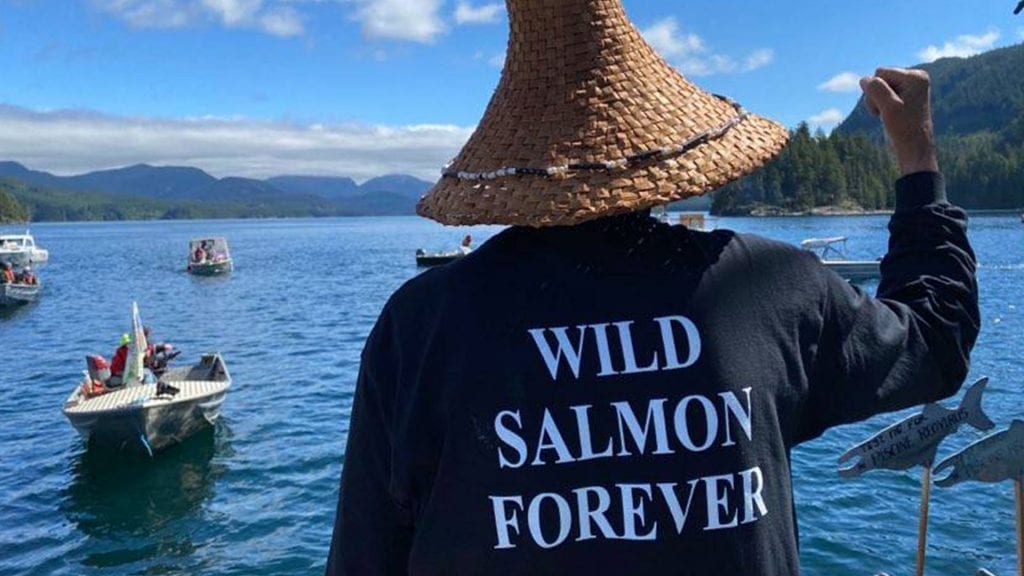
An advocate for wild salmon wears his message on his shirt. PHoto: APTN file
The clouds clear in the Discovery Islands, east Vancouver Island as Hereditary Chief Gigame George Quocksister Jr, Tsahaukuse’s voice rings out over the water to a flotilla protest in front of an empty fish farm.
“We do not want any farms restocked in our territory. We’ve been trying to get these farms out of our territory for 18 years,” he says.
Quocksister is Kwakwaka’wakw, of Laichwiltach Nation, was joined by elected Chief Darren Blaney, Coast Salish of Homalco Nation.
The flotilla was organized in response to a plan to restock three fish farms in the Discovery Islands one last time before they’re phased out in 2022 by order of the Department of Fisheries and Oceans (DFO).
The farms are being blamed for a massive decline in wild salmon stocks.
The decision to close the farms was largely applauded by First Nations and scientists.
“It’s no secret that when the fish farms got here our salmon stock started to decline – to its lowest point in recorded history,” says Quocksister.
He says ten years ago, 30 million salmon returned to this area – last year the stock declined to 283,000.
Blaney believes by closing the farms for good the stock will rebound.
“I think that’s what we were all hoping for when we got this farm shutdown,” Blaney says.
“We called this ƛaqnač (KL-aq-nuch), it meant long in the back. Our fish, they are resilient. They will come back if we give them the chance,” Blaney says,
“It’s been opened up a bit. We’re just going to have to close it again.”
Restocking ‘just one more time’ is all about sovereignty says chief
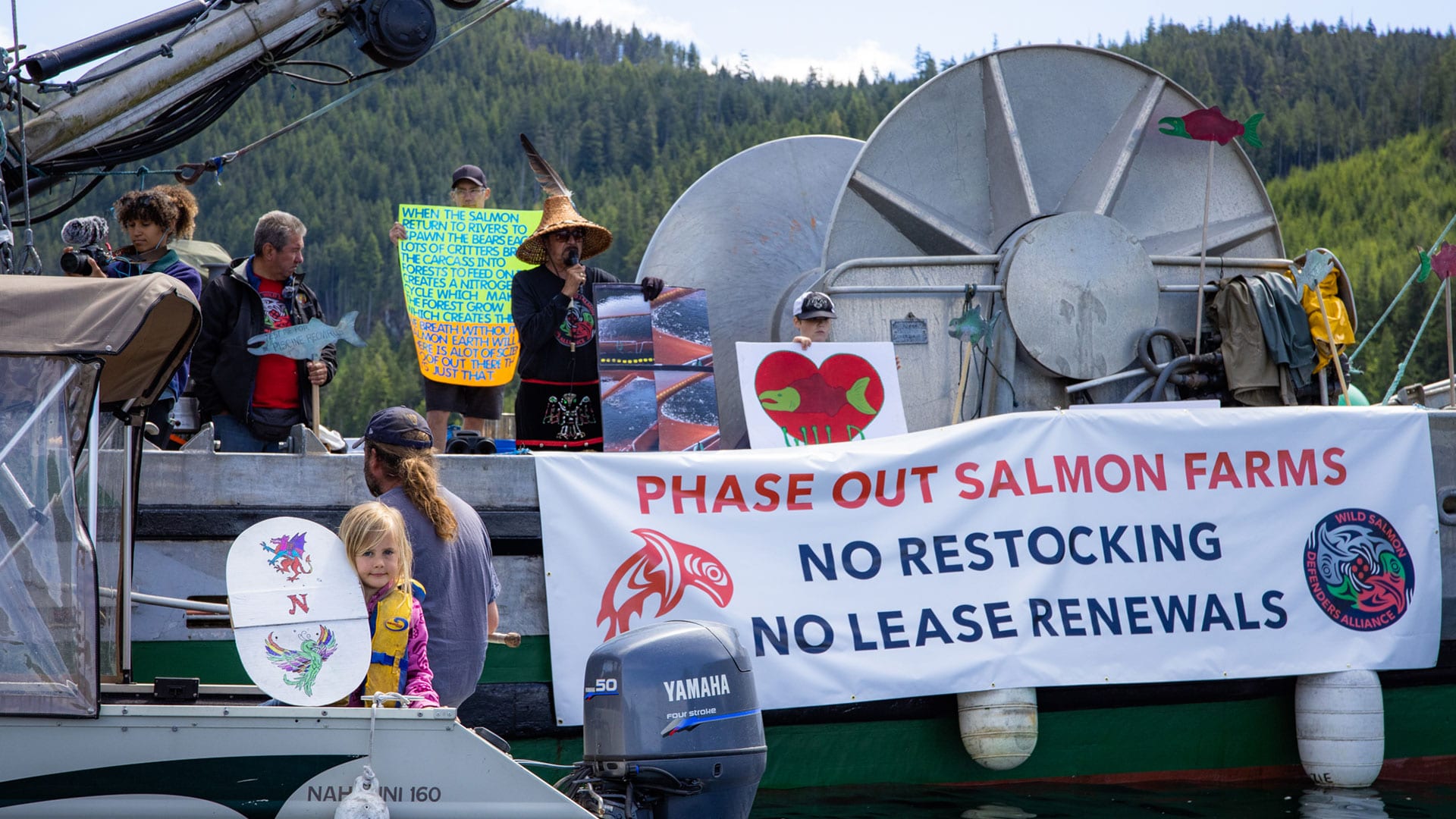
The fish farm where the flotilla is protesting is on the territory of Wei Wai Kum Nation.
It’s a small community, with 358 people living on reserve.
According to Chris Roberts, there are three Nations who “are moving ahead with the salmon farming industry as a whole, in a collaborative approach.”
Roberts, the chief of Wei Wai Kum, says his nation was in the process of signing an agreement with Cermaq, the Mitsubishi owned aquaculture company.
He says DFO’s decision to close down the farms is another example of the government making decisions for his nation.
“Essentially our sovereignty of our territory was being challenged,” he says. “That is not reconciliation and that is not moving along a spectrum of implementing UNDRIP.”
The fish farm company Mowi Canada West challenged DFO’s decision in court.
On April 5, Justice Peter George Pamel ruled that Mowi Canada West will “suffer real and irreparable harm” if they aren’t allowed to restock three farms in the Discovery Islands one more time.
Roberts says 80 to 90 per cent of these farms are located within the Laich-kwil-tach territory, which includes Wei Wai kum, We Wai Kai, and Kwaikah Nations.
“Now there is an extent of that that brings in Klahoose, Tla’amin, Homolco and even K’omoks, but it’s our core area right in the doorstep of our villages and where we live. And that’s added a layer of complication.”
Roberts says disease from farmed salmon isn’t the only challenge the wild stock face – and why they’re in decline.
“There’s tons of other impacts those salmon face all the way up the Fraser river, right from other forestry practices that happen there to harvest by other Indigenous nations along the way that have the right to do so,” he says.
Roberts says Cermaq has told him the restocking means 30-40 jobs
would be preserved a little longer.
The decision was based on science
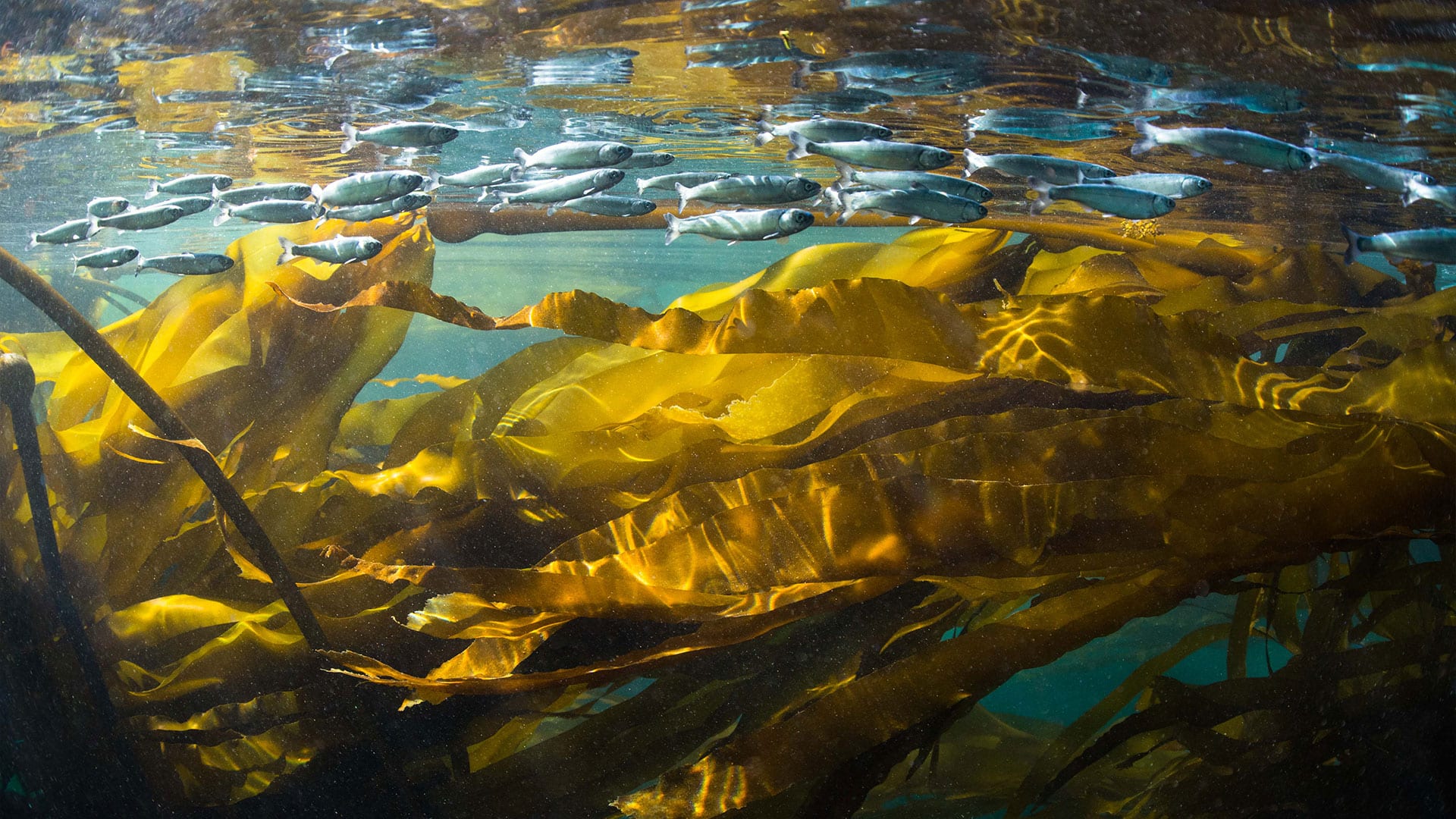
Scientists have been arguing for years that sea lice, mouth rot disease, and Piscine orthoreovirus (PVR) are a threat to wild salmon as they swim past the farms.
Blaney says he feels disheartened to hear of any First Nation signing an agreement to help fish farms restock.
“Any First Nations that signs an agreement with fish farms, they should have to forfeit their food, social and ceremonial fish because that’s happening with every other First Nation if the stocks are wiped out, says Blaney. “It’s quite a trade-off; a few dollars for our culture, a few dollars for food that’s meant for impoverished communities.”
He says rebuilding wild stocks will benefit the local economy, restoring sports fishing and commercial fishing, “it’s all of their livelihoods that we’re looking to put back into place.
“I mean, the fish that are going through now will return four years from now, we’ll see the returns and it’s not going to be built up in one term.
They have to build up over a few generations,” says Blaney.
Leadership
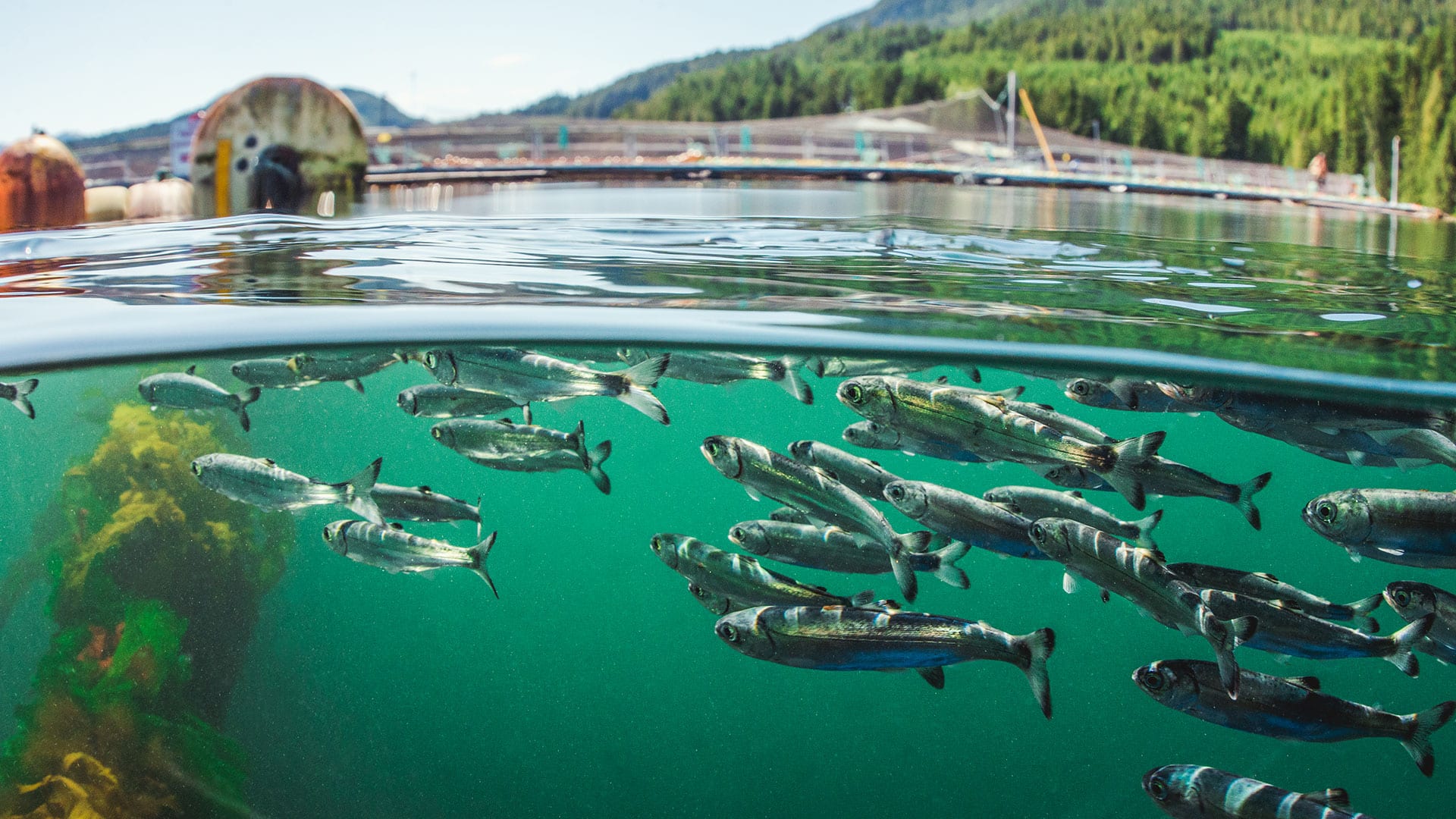
The two Chiefs represent a type of leadership that considers generations to come, they say.
Their communities’ survival has relied on salmon for over 10,000 years, and this will be the seventh year without any sockeye to feed their people.
“We’re losing ground on that, because it’s become all about the money and that’s not a way to be respectful of our environment,” Blaney says.
“We have to hold our end of the bargain.”




